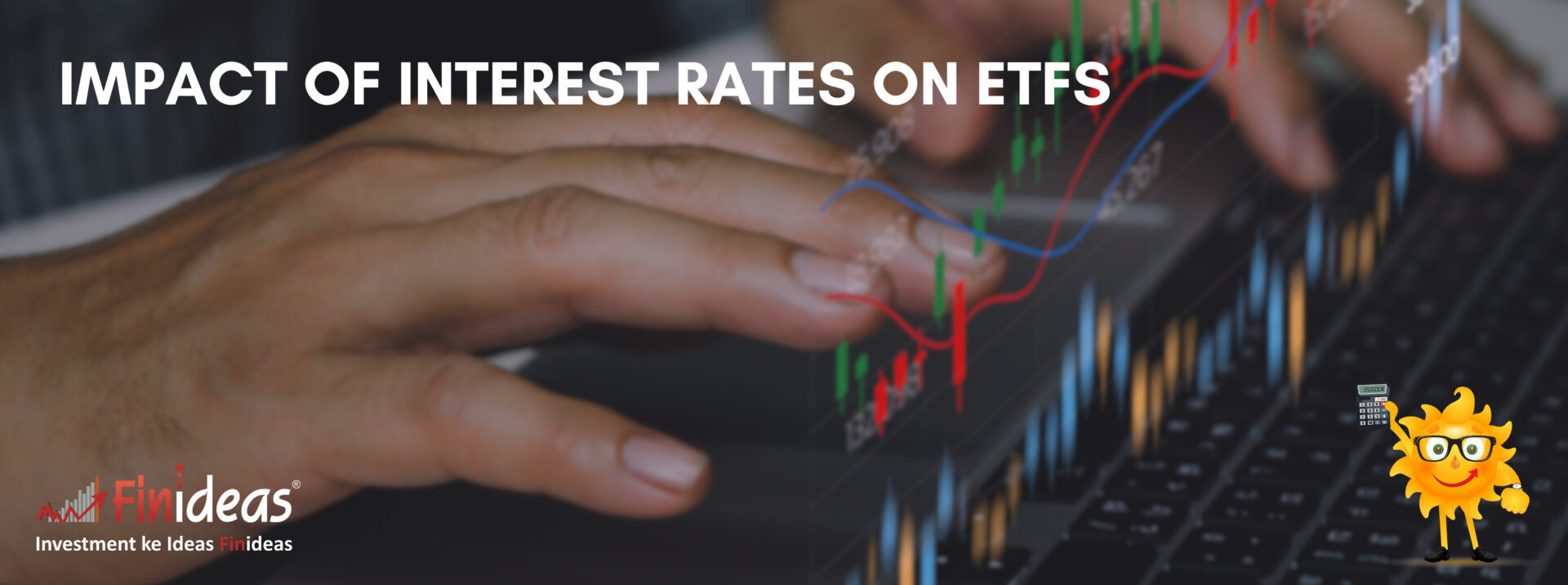Impact of Interest Rates on ETFs
Introduction:
Exchange-Traded Funds (ETFs) have gained significant popularity among investors in recent years. These investment vehicles offer diversification, liquidity, and ease of trading. However, like any investment, ETFs are influenced by various factors, one of which is interest rates. In the Indian context, interest rates play a crucial role in shaping the performance and behaviour of ETFs. In this blog post, we will explore the impact of interest rates on ETFs and delve into how changes in interest rates affect these investment instruments.
Understanding ETFs:
Before we delve into the relationship between interest rates and ETFs, let’s briefly understand what ETFs are. An ETF is a type of investment fund that trades on stock exchanges, mirroring the performance of a specific index or asset class. ETFs are designed to provide investors with exposure to a diversified portfolio of securities, such as stocks, bonds, or commodities. They offer investors the flexibility of buying and selling shares throughout the trading day at market prices. ETFs have gained popularity due to their low costs, tax efficiency, and ease of diversification.
Interest Rates and ETFs:
Interest rates, set by the Reserve Bank of India (RBI), have a profound impact on the overall economy and financial markets. When interest rates rise, borrowing becomes costlier, and individuals and businesses tend to reduce their spending. On the other hand, when interest rates fall, borrowing becomes cheaper, encouraging consumption and investment.
The impact of interest rates on ETFs is primarily seen through two channels: bond ETFs and equity ETFs. Bond ETFs are affected directly by changes in interest rates. When interest rates rise, the prices of existing bonds decline, leading to a decrease in the net asset value (NAV) of bond ETFs. Conversely, when interest rates fall, bond prices rise, resulting in an increase in the NAV of bond ETFs.
Equity ETFs are indirectly influenced by interest rates. Higher interest rates can lead to increased borrowing costs for companies, which may affect their profitability and, in turn, impact the stock market. When interest rates rise, equity markets may experience volatility, affecting the performance of equity ETFs.
Investor Behavior’s and Interest Rates:
The behavior’s of investors is also influenced by changes in interest rates. When interest rates rise, fixed-income investments, such as bonds and fixed deposits, become more attractive due to higher yields. As a result, investors may reallocate their funds from ETFs to fixed-income investments, causing a decrease in demand for ETFs. Conversely, when interest rates decline, investors may seek higher returns, leading to increased demand for equity ETFs.
Interest rates also affect the attractiveness of ETFs as an investment option for borrowing. Investors may use leverage or margin trading to amplify their returns. When interest rates are low, the cost of borrowing is reduced, making it more favourable for investors to borrow and invest in ETFs. Conversely, higher interest rates increase the cost of borrowing, making leverage less attractive.
Conclusion:
Interest rates have a significant impact on ETFs in the Indian context. Changes in interest rates affect both bond ETFs and equity ETFs, either directly or indirectly. Bond ETFs experience changes in their NAV due to shifts in bond prices caused by interest rate fluctuations. Equity ETFs are affected by changes in borrowing costs, which can impact company profitability and stock market performance. Additionally, investor behaviour is influenced by interest rates, leading to changes in demand for ETFs. It is crucial for investors to consider interest rate movements while evaluating the potential risks and returns associated with ETF investments.
We using ETFs in our in Index Long Term Strategy.
Write your reply in the comment box.
Happy Investing!

